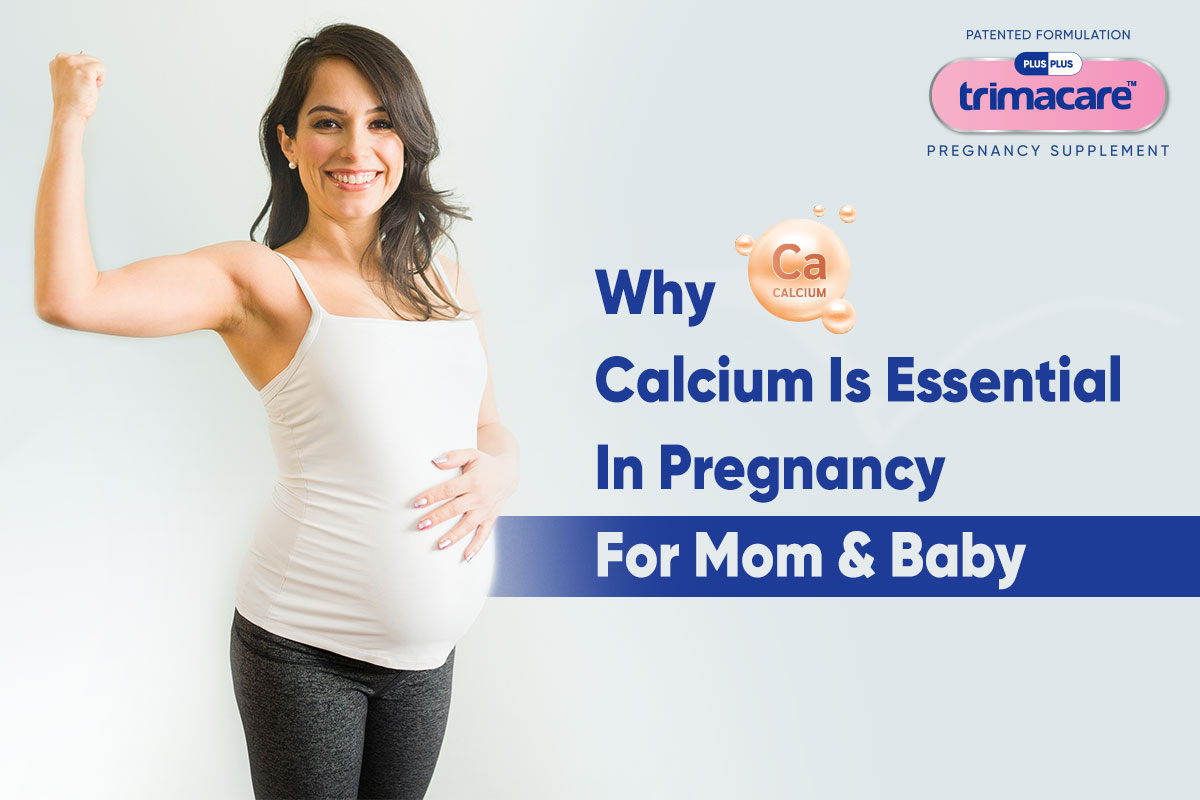Calcium is crucial during pregnancy for improving pregnancy outcomes, potentially preventing pre-eclampsia, pre-term birth, neonatal mortality, and improving bone mineral content, breast milk concentration, and bone development of neonates, as it plays a significant role in pregnancy. Calcium in pregnancy deficiency is crucial for supporting musculoskeletal, neurological, and circulatory systems, and women lacking sufficient calcium are more likely to develop osteoporosis. Calcium during pregnancy is a vital nutrient for health and the development of the mother and unborn child. Pregnant or breastfeeding teenagers need 1300 mg of calcium daily, while pregnant women need up to 1000 mg daily.
Calcium tablets for pregnancy is crucial for improving pregnancy outcomes, potentially preventing pre-eclampsia, pre-term birth, neonatal mortality, and improving bone mineral content, breast milk concentration, and bone development of the baby.
Supplement of calcium in pregnancy is essential during pregnancy for the health of the mother and the baby.
Indian diets may not always provide adequate calcium intake, taking calcium tablets for pregnancy is essential to fulfil nutritional gaps to Indian pregnant women. Indian pregnant women can benefit from Trimacare prenatal tablets, which provide adequate calcium during pregnancy. Trimacare pregnancy vitamin supplement supports the proper development of the teeth and bones of baby, while also preventing pregnancy complications such as hypertension and prevent pre-eclampsia, pre-term birth, and neonatal mortality.
BENEFITS OF CALCIUM TABLETS FOR PREGNANCY
Calcium is essential for a healthy pregnancy, promoting bone and tooth growth, preventing bone depletion, and helping in the growth of the foetal skeleton. Taking calcium supplement pregnancy
also promotes healthy muscle and nerve function in the growing foetus and the mother, prevents blood clotting during delivery and reducing bleeding risks.
- Preventing pregnancy complications – Calcium reduces hypertension and prevent pre-eclampsia, pre-term birth, and neonatal mortality (NNM) but inadequate intake calcium tablets for pregnancy can potentially affect future health of the baby.
- Development of strong bones and teeth- Pregnant women require adequate calcium supplement pregnancy for forming strong bones, teeth, muscle, heart, and nerve development, and supporting the growth of their developing baby.
- Calcium in pregnancy helps in the development of a healthy heart, nerves, muscles, normal heart rhythm, and blood-clotting abilities in babies.
- Helps in Muscle contraction- Calcium tablets for pregnancy promotes healthy tissues and muscle contractions, is crucial for cardiovascular health, and may lower blood pressure in pregnant women. However, excessive intake of calcium supplement pregnancy is not recommended for those already taking blood pressure medication.
- Bone development of neonates- Calcium during pregnancy enhances the bone mineral content, breast milk concentration, and bone development of neonates.
- Preventing chances of osteoporosis in mother- Insufficient intake of calcium tablets for pregnancy can lead to complications and increased susceptibility to osteoporosis, a condition that weakens bones.
CALCIUM-RICH SUPERFOODS FOR HEALTHY PREGNANCY
Calcium is crucial for musculoskeletal strength and foetal development. Pregnant women should consume calcium-rich foods to maintain healthy levels and prevent conditions like premature childbirth and osteoporosis. Some calcium rich superfoods are-
- Dairy products- Milk, yogurt, and cheese are popular calcium sources, providing energy and a good start to the day.
- Dates – This exotic fruit is rich in calcium, carbohydrates, potassium, magnesium, and iron, making it a beneficial food to consume during pregnancy.
- Orange- Orange is a rich source of calcium, essential nutrients like vitamin C, vitamin A, and potassium, which can strengthen bones, boost immunity, and alleviate morning sickness.
- Almond – Almonds are a rich source of Vitamin E and Calcium during pregnancy. Consuming moderate amounts of almond everyday can reduce inflammation, blood sugar, and oxidative stress, preventing metabolic disorders.
- Tofu – Tofu is a nutritious food for pregnant women due to its high iron, protein, and calcium content, low caloric value, and antioxidant content, which reduces breast cancer risk.
- Dried figs – Dried figs are a nutritious, sweet, and calcium-dense snack, with two servings containing 27 milligrams, making them a healthier alternative to refined sugars.
TRIMACARE – THE MOST PREFERRED CALCIUM PRENATAL SUPPLEMENTS FOR PREGNANCY IN INDIA
Trimacare prenatal multivitamins, formulated by experts following WHO and ICMR guidelines, are recommended by leading gynaecologists in the country. Trimacare pregnancy multivitamins are available in three packs for each trimester, containing all the necessary nutrients for a pregnant woman and her child.
Trimacare prenatal pills contain calcium, which helps in the development of baby’s bones and teeth. It further helps in muscle contraction, hormone regulation, and nerve cell functioning. Trimacare 2 and Trimacare 3 prenatal vitamins for women contain 500 mg of calcium.
However, pregnant women should consult their doctors before taking any pregnancy vitamin supplement, as individual nutrient needs can vary. A balanced diet with calcium supplements in pregnancy, such as dairy products, leafy greens, and fortified foods, is also crucial for maternal and foetal health.
Frequently Asked Questions:
1. Why is calcium important during pregnancy?
Calcium plays a crucial role in the development of your baby’s bones, teeth, muscles, and nerves. It also helps in the formation of a healthy circulatory system, ensuring proper blood clotting and functioning.
2. How much calcium do I need during pregnancy?
The recommended daily intake of calcium during pregnancy varies, but on average, expectant mothers should aim for around 1000 to 1300 milligrams. This can be achieved through a combination of dietary sources, supplements, and fortified foods.
3. What are good dietary sources of calcium for pregnant women?
Dairy products such as milk, cheese, and yogurt are excellent sources of calcium. Additionally, green leafy vegetables, fortified plant-based milk alternatives, and certain nuts and seeds can contribute to meeting your calcium requirements during pregnancy.
4. Can I take calcium supplements during pregnancy?
Yes, calcium supplements are often recommended to ensure you meet your daily requirements, especially if your diet falls short. However, it’s crucial to consult with your healthcare provider before starting any supplements to determine the appropriate dosage for your specific needs.
5. Are there any risks associated with excessive calcium intake during pregnancy?
While meeting your calcium needs is essential, excessive intake can lead to complications. It’s important not to exceed the recommended dosage, as too much calcium can interfere with the absorption of other minerals and may contribute to the development of kidney stones. Always follow your healthcare provider’s guidance for a balanced approach.
A Certified Nutritionist with a rich healthcare background in health journalism, the author has immense experience in curating reader-friendly, engaging, and informative healthcare blogs to empower readers to make informed pregnancy-related decisions.












